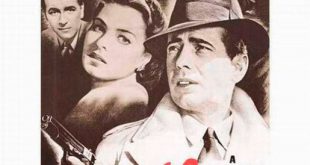Homo appeared roughly 2 million years ago in Africa and Homo sapiens roughly 200’000 years ago in East Africa. Harari divides his account of the last 70’000 years into four parts: The cognitive revolution (language), the agricultural revolution (about 10’000 years ago in today’s Turkey, Iran, Levant), the unification of humankind (through money, empire, and religion), and the scientific revolution. According to Harari, Sapiens developed more efficient strategies for cooperation than other...
Read More »Yuval Noah Harari’s “Sapiens—A Brief History of Humankind”
Homo appeared roughly 2 million years ago in Africa and Homo sapiens roughly 200’000 years ago in East Africa. Harari divides his account of the last 70’000 years into four parts: The cognitive revolution (language), the agricultural revolution (about 10’000 years ago in today’s Turkey, Iran, Levant), the unification of humankind (through money, empire, and religion), and the scientific revolution. According to Harari, Sapiens developed more efficient strategies for cooperation than other...
Read More »“Specialization and Trade, A Re-Introduction to Economics”
Arnold Kling (2016), Specialization and Trade, A Re-Introduction to Economics, Washington, DC, Cato Institute. Kling’s central theme in this short book of nine main chapters is that specialization, trade, and the coordination of individual plans by means of the price system and the profit motive play fundamental roles in modern economies. Most mainstream economists would agree with this assessment. Their models of trade, growth, and innovation certainly include the four elements, with...
Read More »Truth, Triviality, and Contradiction
Nils Bohr chose Contraria Sunt Complementa as motto for his coat of arms. According to his son and others, Bohr distinguished between the logical properties of trivialities on the one hand and profound truths on the other: The opposite of a correct statement is a false statement. But the opposite of a profound truth may well be another profound truth. [Unsourced] There are two sorts of truth: Profound truths recognized by the fact that the opposite is also a profound truth, in contrast to...
Read More »Truth, Triviality, and Contradiction
Nils Bohr chose Contraria Sunt Complementa as motto for his coat of arms. According to his son and others, Bohr distinguished between the logical properties of trivialities on the one hand and profound truths on the other: The opposite of a correct statement is a false statement. But the opposite of a profound truth may well be another profound truth. [Unsourced] There are two sorts of truth: Profound truths recognized by the fact that the opposite is also a profound truth, in contrast to...
Read More »“Casablanca”
Premiere: November 26, 1942 in New York.
Read More »California
πάντα ῥεῖ (California)
Lonely in America
Nevada offers lots of loneliness, including The Loneliest Road in America. Some other roads are even quieter.
Read More » Swiss Economicblogs.org
Swiss Economicblogs.org





